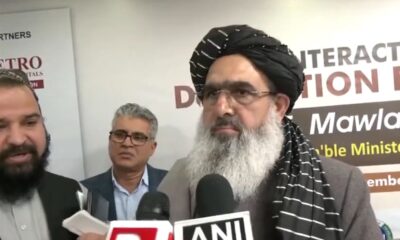Latest News
Violence and terrorism key concerns noted in Heart of Asia declaration
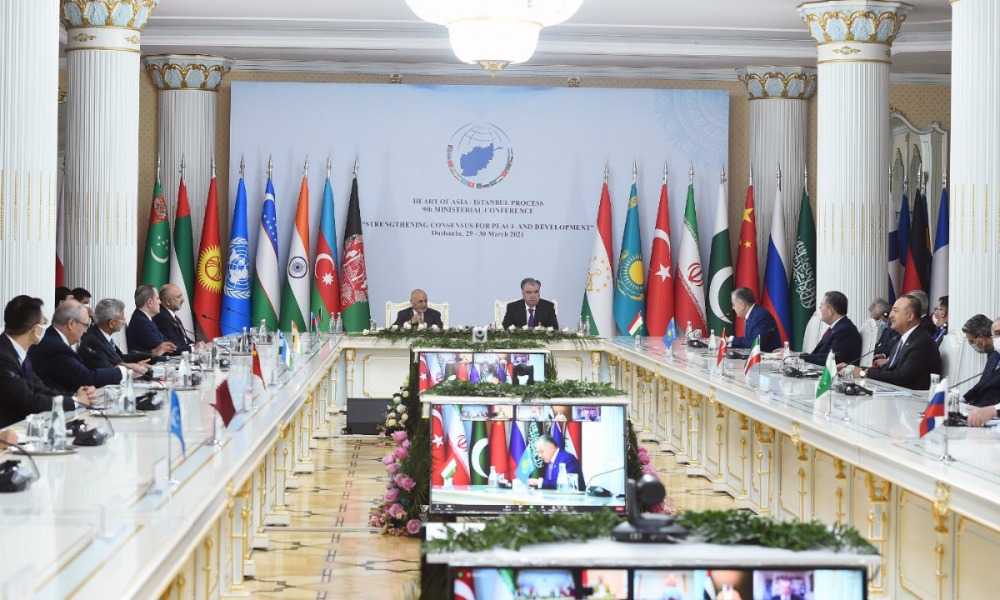
Delegates attending the Heart of Asia-Istanbul Process ministerial meeting in Dushanbe, Tajikistan, signed a declaration on Tuesday on a number of key issues including the concern around the high levels of violence in Afghanistan and the continued relations between the Taliban and international terrorist groups, including Al-Qaeda.
In their declaration, the participating countries expressed their “concerns about the continued relations between the Taliban and international terrorist groups, including Al-Qaeda”.
“While taking note of the recent announcement made by the Taliban to have ordered its members across Afghanistan not to allow foreign fighters in their ranks, we reaffirm the importance of ensuring that the territory of Afghanistan is not used as safe havens for any terrorist groups, foreign terrorist entity, including Daesh/ISIS, Al-Qaeda or other regional and international terrorist groups and their affiliates,” the declaration read.
The participating countries also stated they “remain determined to counter all forms and manifestations of terrorism and extremism by reinforcing our collective efforts.
“We reiterate our resolve to work together to prevent and suppress terrorist acts through increased regional and international solidarity and cooperation, in accordance with the UN Charter and obligations under international law, including international human rights law, international humanitarian law, and where applicable the international refugee law, as well as through the full implementation of the UN Security Council Resolutions.”
In this regard, the participating countries said they “strongly call for concerted regional and international cooperation to ensure dismantling of terrorist sanctuaries and safe havens, preventing and interdicting the movement of terrorists and terrorist groups, including foreign terrorist fighters, across the countries of the HoA Region and anywhere else, as well as disrupting all financial, tactical, logistical or any other form of support for terrorism without any distinction.”
Also in line with security, the declaration noted that all participating countries welcome efforts to forge peace in Afghanistan and that they were all committed to a safe and secure Afghanistan.
The declaration noted that a comprehensive and permanent ceasefire in Afghanistan will enable all sides to reach an agreement on a political settlement, which the participatory countries stated that any political settlement must protect the rights of all Afghans, including women, youth and minorities.
“It should also respect the strong desire of Afghans to achieve durable peace and prosperity, and must respond to their strong desire to sustain and build on the economic, social, political and development gains achieved since 2001, including respect for Afghanistan’s international obligations,” the statement read.
On the topic of narcotics, the declaration noted the HoA countries were concerned about the high level of illicit cultivation and production of opium in Afghanistan, the volume of drug trafficking, illicit drug trade, trafficking of precursors, the new prevalence of methamphetamine, the rising demand for illicit narcotics and the rising drug abuse in the region and beyond.
“This poses a threat to the socio-economic development, security and stability not only in Afghanistan, but also in the surrounding region and the world as a whole.
“Further eradication of opium cultivation, promotion of alternative livelihoods, law enforcement, prevention, treatment, rehabilitation and public information efforts are required as part of a comprehensive and integrated strategy to address this common challenge, based on the principle of common and shared responsibility, and consistent with the international drug control conventions.
“We call upon the international community to continue to assist the Government of Afghanistan in implementing its National Drug Control Strategy and National Drug Action Plan and its efforts to eliminate the cultivation and production of, trafficking in and consumption of illicit drugs, increase support for Afghan law enforcement and criminal justice agencies, agricultural and rural development for the creation of improved alternative, licit livelihoods for farmers and demand-reduction support, increase public awareness of counter-narcotics issues and build the capacity of drug control institutions, and care and treatment centers for drug users.”
The declaration also noted that participating countries “stress the urgent need to respond to the serious challenges posed by the nexus between revenue from illicit narcotics and financial support for anti-government actors and terrorist entities in Afghanistan and the HoA Region.”
The declaration also noted joint efforts to advance Afghanistan’s economy and that of the region were welcomed and they acknowledged the historical role of Afghanistan as a land bridge in promoting regional connectivity and economic integration.
The HoA-IP declaration also stated participating countries “recognize the central and impartial role of the United Nations in promoting peace and stability in Afghanistan”.
Member nations also said they appreciate the continued efforts of the OIC and its Member States in support of the Afghan Peace Process and their call for an immediate and comprehensive ceasefire.
“We also welcome the declarations of the Muslim countries calling for an end of violence and calling the ongoing war and bloodshed in Afghanistan religiously illegitimate.”
Confidence-building measures to enhance trust and cooperation was also noted in the declaration with member nations calling for participating countries to continue implementing such measures that are in place.
The declaration was adopted in Dushanbe on Tuesday, 30 March 2021, by the Foreign Ministers and high-level representatives of the Participating Countries of the HoA-IP.
These included Afghanistan, Azerbaijan, China, India, Iran, Kazakhstan, Kyrgyz Republic, Pakistan, Russia, Saudi Arabia, Tajikistan, Turkey, Turkmenistan, the United Arab Emirates, and Uzbekistan.
The declaration was also supported by Australia, Canada, Denmark, Egypt, Finland, France, Germany, Iraq, Italy, Japan, Poland, Norway, Spain, Sweden, the United Kingdom, the United States, and more than ten organizations including NATO and the UN.
Latest News
Afghan health minister calls for medical cooperation between Kabul and New Delhi
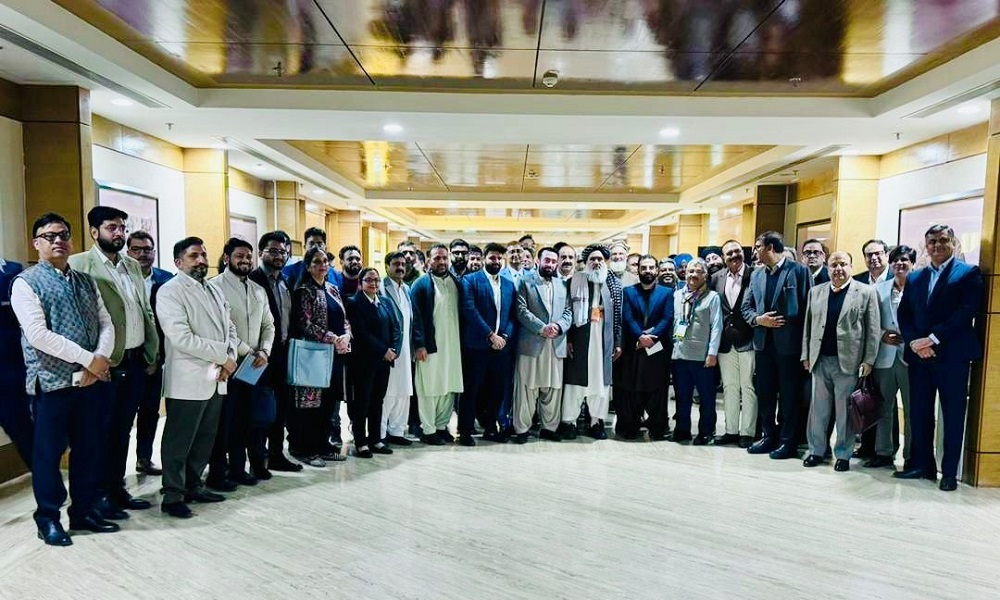
Afghanistan’s Health Minister, Noor Jalal Jalali, held a meeting on Saturday with officials from Pharmaceuticals Export Promotion Council (PharmEXCIL) to discuss expanding cooperation and bilateral relations in the fields of medicines, medical products, and health equipment between Kabul and New Delhi.
In a statement issued by the Afghan Health Ministry, both sides also emphasized strengthening the pharmaceutical industry’s capacity and the importance of providing affordable, high-quality medicines to the public.
The talks also focused on boosting cooperation in medicines, medical products, and healthcare equipment, highlighting affordable and quality drug access.
Jalali called PharmEXCIL’s support crucial for strengthening Afghanistan’s healthcare system and delivering standardized services.
He added the partnership is strategically important for drug safety, quality assurance, and sustainable health services.
PharmEXCIL outlined its work in pharmaceuticals, vaccines, biologics, medical devices, diagnostics equipment, herbal medicines, contract manufacturing, and R&D.
The council, under India’s Ministry of Commerce, oversees the promotion, regulation, and export of Indian medicines and health products.
PharmEXCIL also donated around 100,000 patches to Afghanistan to support treatment of seasonal illnesses.
Latest News
Deputy PM Baradar urges world to expand economic ties with IEA instead of sanctions

Mullah Abdul Ghani Baradar, the Deputy Prime Minister for Economic Affairs, has urged the countries in the region and around the world to soften and expand their economic relations with the Islamic Emirate instead of imposing sanctions and undue pressure.
In a statement issued by the deputy PMs office, Baradar made these remarks on Saturday during a speech at the inauguration ceremony of a commercial market in Balkh province.
Baradar added that a prosperous and strong Afghanistan is not to the detriment of other countries in the region; rather, it contributes to the welfare and strengthening of other nations.
He said: “The Islamic Emirate believes in comprehensive economic and political authenticity in the field of regional and international cooperation, provided that there is mutual respect for major values and fundamental principles.”
He stated that IEA’s engagement with the private sector in large-scale and long-term projects—based on public-private partnerships or other types of contracts—conveys a clear message that the environment for domestic and foreign investment in Afghanistan is favorable, and that anyone can take advantage of this opportunity.
Latest News
Karzai urges reopening of girls’ schools and universities for Afghanistan’s bright future
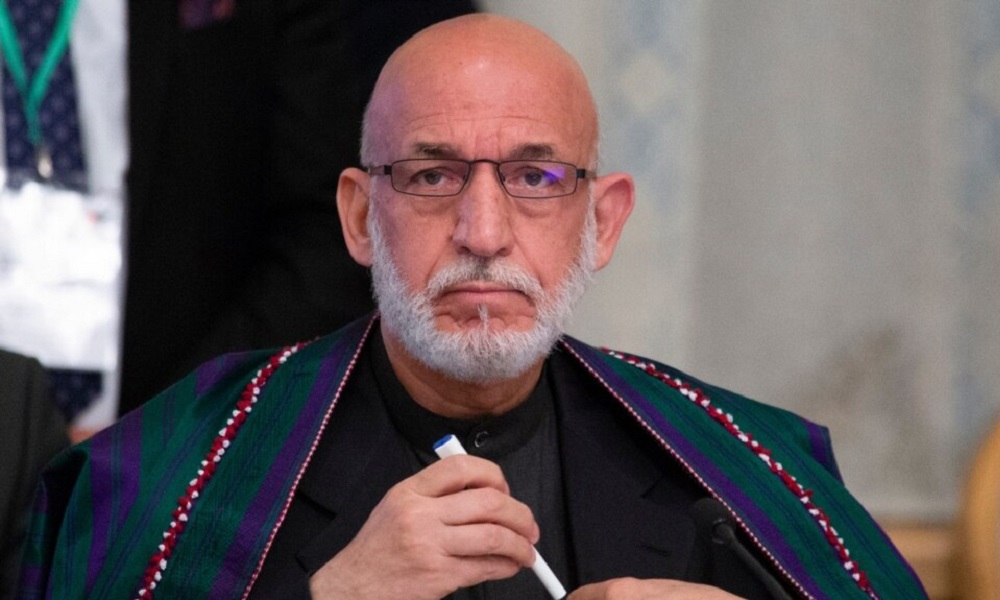
Former Afghan President Hamid Karzai says knowledge and education are the primary pillars of progress and dignity in any society.
In a post marking the end of the academic year and the preparation of 12th-grade graduates for the Kankor (university entrance) exam, Karzai said on Saturday that Afghanistan needs hundreds of thousands of female and male doctors, engineers, economists, technology specialists, and experts in other fields to become self-reliant.
He called on all students to make greater efforts and to reach higher levels in scientific and social sciences.
He once again emphasized: “I hope that, for a bright future for Afghanistan, girls’ schools and universities should be reopened so that our daughters can stand on their own feet and become worthy of serving the country.”
-

 Latest News5 days ago
Latest News5 days agoIEA supreme leader stresses enforcement of Sharia law and sincere public service
-

 International Sports4 days ago
International Sports4 days agoIPL 2026: Teams take shape after auction as franchises balance star power and depth
-

 Sport5 days ago
Sport5 days agoILT20: Sharjah Warriorz secure 11-run victory over Gulf Giants
-
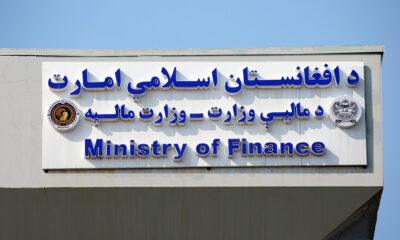
 Business5 days ago
Business5 days agoAfghanistan, India discuss expanding investment opportunities
-

 Sport5 days ago
Sport5 days agoAbu Muslim Farah crowned champions of fifth season of Afghanistan Champions League
-

 International Sports4 days ago
International Sports4 days agoILT20: Abu Dhabi Knight Riders end Desert Vipers’ unbeaten run in dramatic one-run win
-

 Latest News5 days ago
Latest News5 days agoEU and IFC launch €5 million program to support Afghanistan’s private sector
-

 Latest News4 days ago
Latest News4 days agoHigh-level Kyrgyz delegation arrives in Kabul










